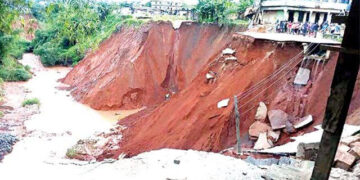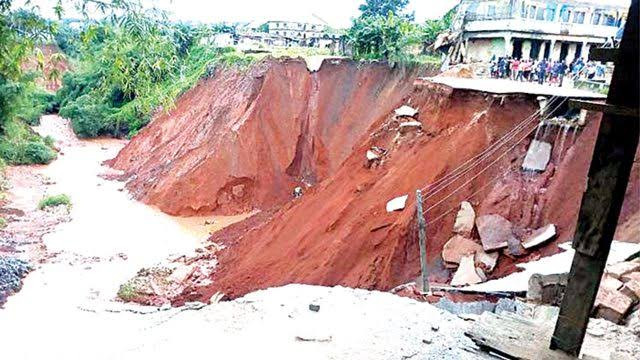By Ebi Kesiena
Benin’s government is engaged in a substantial effort to defend coastal communities along its Atlantic coast from the threat of sea erosion.
Although not all coastal erosion is linked to climate change, since 2002, Benin has lost kilometers of coastline, said Esquill Outiclissou, executive of the government’s general directorate of environment and climate.
“The state has not remained idle,” he said, pointing to protective structures, stone groynes and other installations, particularly to the east of Cotonou.
According to Outiclissou, nearly 100 billion CFA francs ($160 million) have been injected into the protection of Beninese coasts in recent years and the investment helped slow down the ocean’s advance.
For seaside restaurant owner Doris Alapini, she can only watch as waves tirelessly eat away her land and the large seaside restaurant she built.
The ocean is slowly winning the battle.
“The sea is advancing a lot. We have to do dredging or else block it, otherwise it will keep advancing,” Alapini said as she walked along Cotonou’s long sandy beach.
“I have seen how many times it has destroyed and invaded the neighborhood.”
She has lived for 27 years in the Jak district, one of the oldest and most chic in the economic capital of Benin. Every year, sea waters overflow into her area.
“The neighborhood is under threat every day,” she said.
“No one here has any guarantees. If there is a big wave, it will demolish the entire neighborhood.”
Also, Alain Tossounon, President of a network of media focusing on water, the climate and environment, agrees more needs to be done to avert the effect of erosion.
“Efforts have not been sufficient and populations have not yet become aware of the importance of this phenomenon in the years to come.
“We must consider a regional approach to slow down the advance of the waves,” Tossounon said.
With Benin not the only country concerned, joining forces with neighbours could bring more results.
Africa often finds itself on the front line of climate change impact despite the continent contributing the least to greenhouse gas emissions globally.
Still, Benin and its littoral West African neighbors Togo and Ghana, are just like Pacific islands and coastal South Asian cities, at risk of shore erosion’s impact on communities.
With global warming affecting sea levels, coastal erosion will be one of the subjects leaders will address when they meet for COP28 in Dubai in December.
However, Benin and Togo have already started working together to slow the waves in the fishing villages along the coast.



































